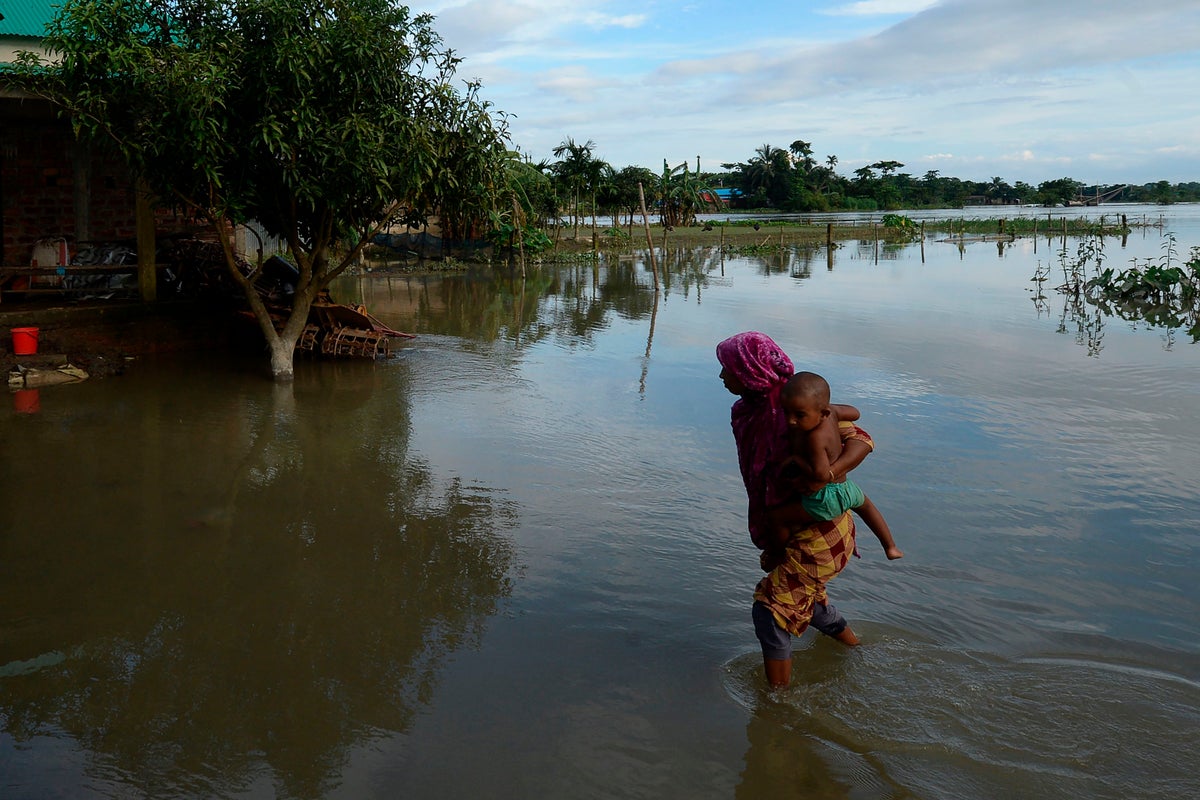
Extreme weather events sparked by the climate crisis has led to an increase in the amount of violence experienced by women, girls, and sexual and gender minorities, according to a new study.
The research, published in the journal The Lancet Planetary Health, assessed existing scientific literature on extreme weather events and found that the climate crisis is driving economic instability, food insecurity, mental stress, while also disrupting infrastructure and exacerbating gender inequality.
Climate change-induced socioeconomic instability, structural power inequalities, health-care inaccessibility, resource scarcity, as well as breakdowns in safety and law enforcement and other factors, scientists say there could be increased gender-based violence across the world.
Researchers, including those from the University of Cambridge in the UK, say such violence can lead to long-term consequences including physical injury, unwanted pregnancy, exposure to HIV or other sexually transmitted infections, fertility problems, internalised stigma, mental health conditions, and ramifications for children.
Citing an example, researchers say in the aftermath of Hurricane Katrina, which struck the Gulf Coast of the US in 2005, gender-based violence increased, particularly interpersonal violence or intimate partner violence.
They also found a link between flooding incidence and early marriage in Bangladesh, with spikes in early marriages observed to be coinciding with the 1998 and 2004 floods.
In their review of existing research, scientists identified 41 studies that explored several types of extreme events, such as storms, floods, droughts, heatwaves, and wildfires, alongside gender-based violence, such as sexual violence and harassment, physical violence, “witch” killing, early or forced marriage, and emotional violence.
The reviewed studies covered countries on six continents with all but one focused on cisgender women and girls.
Scientists found that factors such as economic shock, social instability, enabling environments, and stress caused by extreme weather and climate events drive gender-based violence.
Perpetrators of such gender-based violence ranged from partners and family members, through to religious leaders, relief workers and government officials, according to the reviewed studies.
While the relationship between extreme weather events and violence varies across settings due to differences in social norms, vulnerability, adaptive capacity and available reporting and legal mechanisms, scientists say the experience of gender-based violence during and after such climate events seems to be a shared experience.
Based on the analysis, researchers say the amplification of this type of violence is not constrained geographically.
“Extreme events don’t themselves cause gender-based violence, but rather they exacerbate the drivers of violence or create environments that enable this type of behavior,” study co-author Kim van Daalen from the University of Cambridge said.
Researchers say systematic social and patriarchal structures that enable and normalise such violence are at the root of this behavior.
“Existing social roles and norms, combined with inequalities leading to marginalization, discrimination, and dispossession make women, girls, and sexual and gender minorities disproportionately vulnerable to the adverse impacts of extreme events,” Dr van Daalen explained.
The study warns that experiencing such gender-based violence could further increase vulnerability.
Citing an example, researchers say some women or gender and sexual minorities, when facing the likelihood of experiencing harassment in relief camps, may choose to stay home or return to their homes even before doing so is safe.
This puts them in additional danger from extreme events and further restricts their already limited access to relief resources.
Living through extreme weather events may also cause some victims to feel they could no longer endure abuse, or to feel less inhibited to report the abuse than before the event, scientists say.
Reporting gender-based violence also remains plagued by a number of factors in several countries.
“Disaster management needs to focus on preventing, mitigating, and adapting to drivers of gender-based violence. It’s crucial that it’s informed by the women, girls, and sexual and gender minority populations affected and takes into account local sexual and gender cultures and local norms, traditions, and social attitudes,” Dr van Daalen said.
Scientists call for post-disaster shelters and relief services such as toilets and bath areas to be designed for access exclusively by women, girls, and sexual and gender minorities.
They say emergency response teams, specifically trained in prevention of gender-based violence, could be provided.
Researchers also call for empowerment initiatives for women and sexual and gender minorities that challenge regressive gender norms to reduce vulnerability and bring opportunities to negotiate their circumstances.







